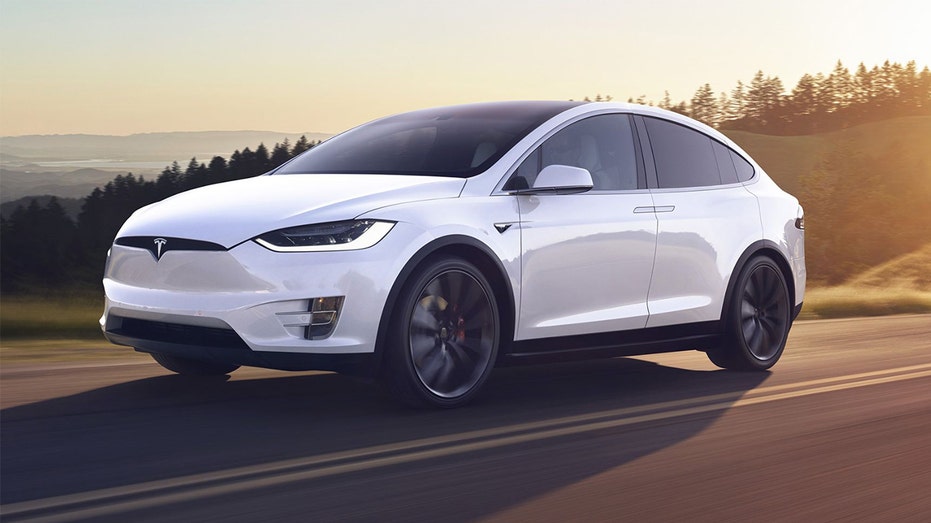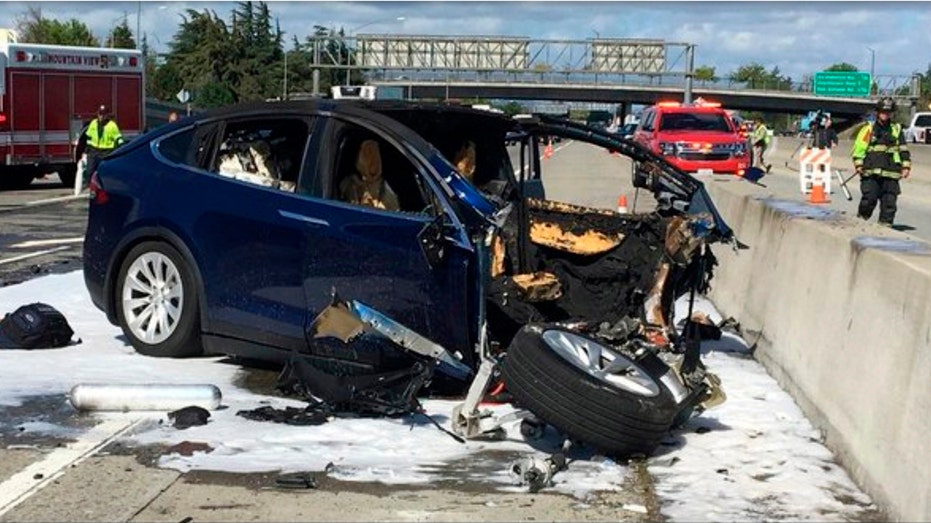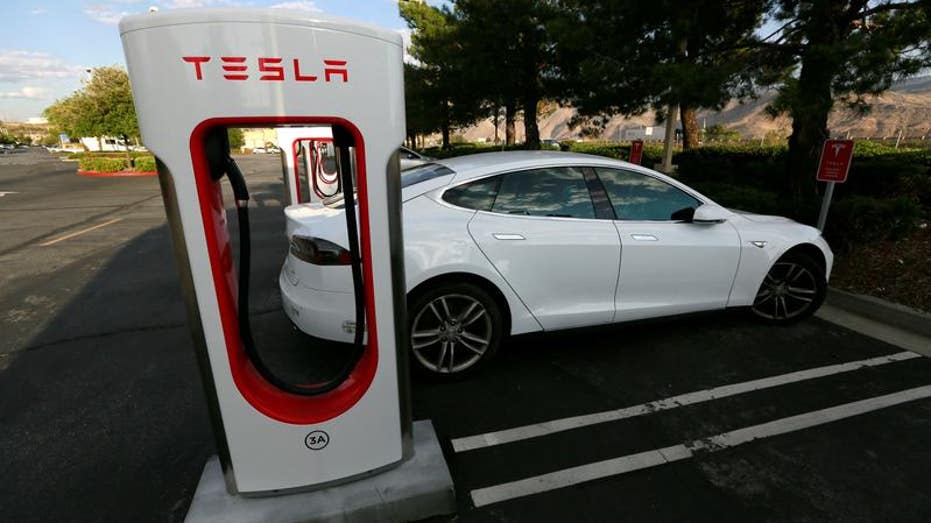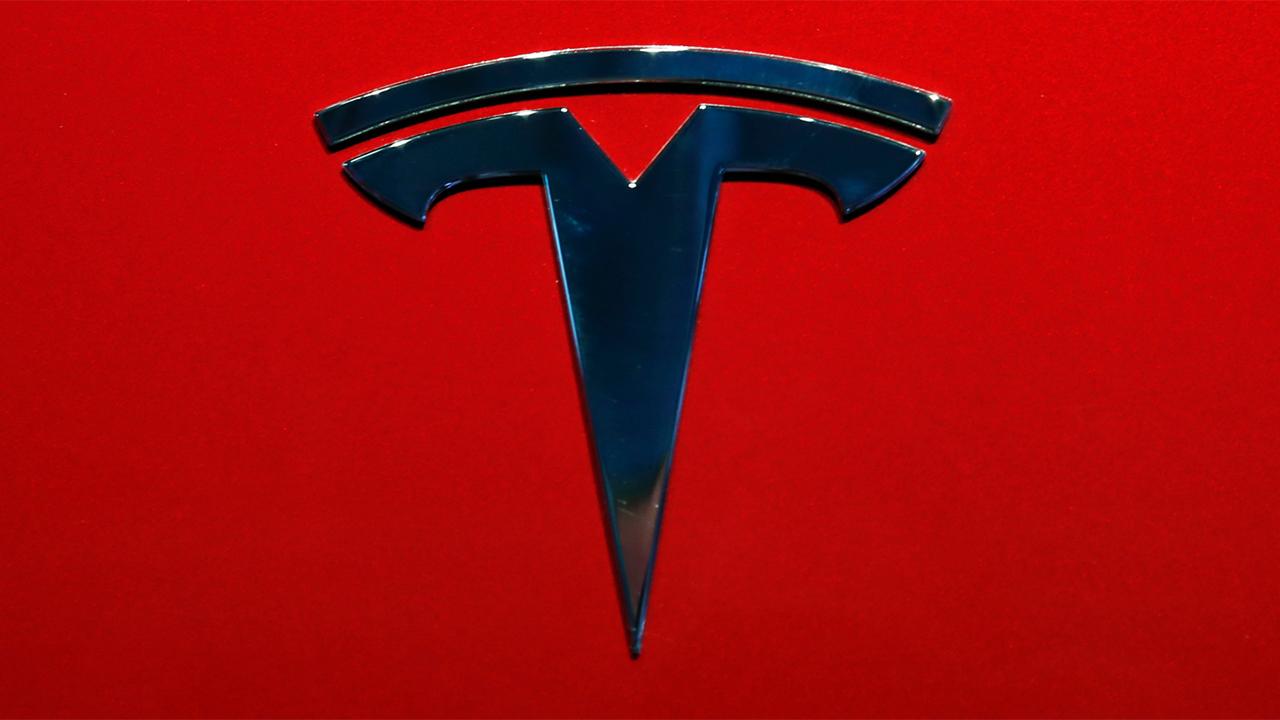Are Teslas safe?
Tesla promotes its cars as the safest 'in the world'
Tesla promotes its cars as the safest "in the world" despite having faced scrutiny for "unintended acceleration" issues in relation to artificial intelligence (AI) technology installed in its vehicles in the last year.
The Palo Alto, California, automaker's vehicles have faced a number of federal investigations between 2019 and 2020, but the auto manufacturer has also received glowing safety reviews for many of its car models.
Even the National Highway Traffic Safety Administration, the U.S. government's auto safety agency that has conducted a number of those investigations, gives five-star ratings to a number of Tesla vehicles.

Tesla Model X / Tesla
The NHSTA also gave five-star safety ratings to all variants of the 2020 five-seat, six-seat and seven-passenger Tesla Model X SUVs; and the 2019 Tesla Model X 60D, 75D, 90D, P100D and P90D SUVs. The website does not have any reviews of any Tesla Model S vehicles.
TESLA MODEL 3: ONE OF THE WORLD'S SAFEST CARS?
Honda, Hyundai, Kia, Subaru, Mazda and other more mainstream automakers won the majority of the NHSTA's other awards for 2020 top safety picks.
The Insurance Institute for Highway Safety, a U.S. nonprofit organization funded by auto insurance companies, chose the 2020 Tesla Model 3 as one of its top vehicle safety picks for this year for its "midsize luxury cars" category. The BMW 3 series 4-door sedan, Mercedes-Benz C-Class 4-door sedan, Lexus ES 350 4-door sedan and Volvo S60 4-door sedan also won in the same category.
SHOULD TESLA HAVE ISSUED RECALL OVER BATTERY ISSUE? NHTSA INVESTIGATING
Tesla's own website touts its vehicles as the "safest cars in the world."

Elon Musk, CEO of Tesla Motors Inc., introduces the Model X car at the company's headquarters in Fremont, Calif. (AP Photo/Marcio Jose Sanchez, File)
"Model S, Model X and Model 3 have achieved the lowest probability of injury of any vehicle ever tested by the U.S. government’s New Car Assessment Program," the website reads. "Much of this has to do with the rigid, fortified structure of the battery pack that is mounted to a car’s floor, which provides a vehicle with exceptional strength, large crumple zones, and a uniquely low center of gravity. Because of their strength, Tesla’s battery packs rarely incur serious damage in accidents."
But the NHSTA has been critical of the electric carmaker, too.
The auto safety agency's crash program investigates more than 100 car crashes every year. In 2019, the crash program inspected 23 crashes involving vehicles that the agency believed were operating on some form of partially automated advanced driver-assist system. Fourteen of these cases involved Tesla models.
TESLA COULD FACE NHTSA PROBE OVER 'SUDDEN UNINTENDED ACCELERATION'
An unidentified person petitioned the NHTSA in January asking for an investigation into the acceleration problem. An agency document outlining the allegations showed 127 owner complaints to the government that include 110 crashes and 52 injuries.

Emergency personnel work a the scene where a Tesla electric SUV crashed into a barrier on U.S. Highway 101 in Mountain View, Calif., on March 23, 2018. (KTVU via AP)
The agency said the allegations include about 500,000 Tesla Model 3, Model S and Model X vehicles from the 2013 through 2019 model years.
The petition added to a growing list of federal investigations into the Palo Alto, California, automaker's vehicles.
NHTSA is investigating three December crashes involving Tesla vehicles in which three people were killed. The agency's special crash investigations unit sent teams to Gardena, California, and near Terre Haute, Indiana, to probe two fatal crashes. Another crash in Connecticut is under investigation.
GET FOX BUSINESS ON THE GO BY CLICKING HERE
Tesla has said repeatedly that its Autopilot system is designed only to assist drivers, who must still pay attention and be ready to intervene at all times. The company contends that Teslas with Autopilot are safer than vehicles without it but cautions that the system does not prevent all crashes.
In a company blog post published Jan. 20, which was also shared on Twitter, titled, "There is no 'unintended acceleration' in Tesla vehicles," the company alleges a short-seller is behind the report the company says is false.

A Tesla Model S charges at a Tesla Supercharger station in Cabazon, California, May 18, 2016. (REUTERS/Sam Mircovich/File Photo)
"This petition is completely false and was brought by a Tesla short-seller. We investigate every single incident where the driver alleges to us that their vehicle accelerated contrary to their input, and in every case where we had the vehicle's data, we confirmed that the car operated as designed. In other words, the car accelerates if, and only if, the driver told it to do so, and it slows or stops when the driver applies the brake," the blog post read.
Tesla's crash reports, which the company started making available to the public in 2018, can be viewed on the company's website.
CLICK HERE TO READ MORE ON FOX BUSINESS
The Associated Press contributed to this report.




















